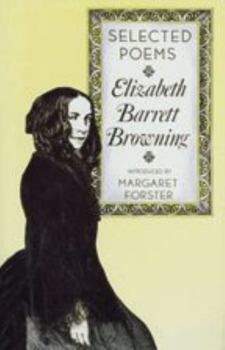Selected Poems of Elizabeth Barrett Browning
Select Format
Select Condition 
Book Overview
Most of Elizabeth Barrett Browning's poetry has been unavailable to new readers, in spite of a growing appreciation of her innovativeness as a poet--and it spite of her onvious importance for any feminist reading of nineteenth-century English poetry. With the publication of this book, a major portion of Elizabeth Barrett Browning's wok returns to print.
The poems selected here includ early verse published in 1826, when the poet was twenty, as well as the last poems she wrote before her death in 1861. Her religious verse appears alongside lively ballads, examples of her social-reforming and political verse, and generous selections of her love poetry, including the whole of the Sonnets from the Portuguese.
The volume illustrates Elizabeth Barrett Browning's development as a poet and reveals her contribution to feminist literature. Innocent-seeming ballads, beloved in the Victorian period for their sweetness and condemned thereafter for their cloying sentimentality, here emerge as subversive articulations of the plight of women. Few heard what Elizabeth Barrett Browning said [in her time], Margaret Forster writes. Today, with ears more finely attuned, we can hear her clearly.






